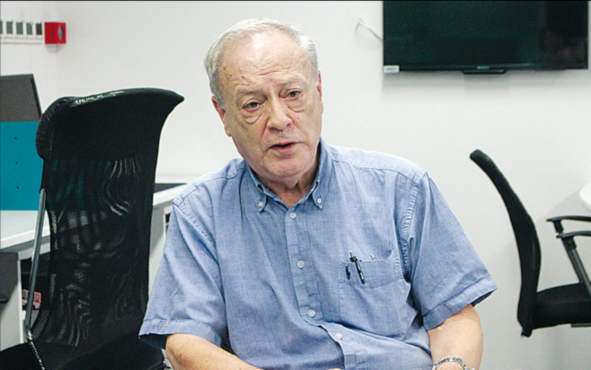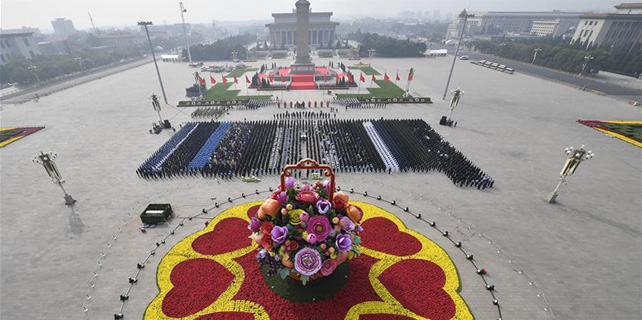A recognition of distinction
A look at the lives and motivations of three of the Americans who were conferred
the Shanghai Magnolia Award this year, Alywin Chew reports
Telling China's side of the story
 |
|
Leonard Pratt is currently a foreign expert at International Channel Shanghai which is under SMG. Jia Haoyu / for China Daily |
As a veteran journalist with nearly 40 years of experience under his belt, Leonard Pratt has worked in several countries and covered numerous major events.
But Pratt, who has been based in Shanghai for more than a decade, noted that there isn't a specific event that he would consider to be the most memorable.
Rather, he pointed to his time in China and having the opportunity to watch the nation grow as one of the most satisfying aspects of his career.
"I first came to Shanghai in 1982. I remember being down by the Huangpu River and looking across and there was nothing there. It was mud and dirt, and some warehouses were falling into the water," said the 72-year-old. "Today, when I look across the river, I see an incredible city that has been built in just 30 years. It's simply unbelievable."
Following his graduation from Columbia University, Pratt worked for the Associated Press and was based in countries such as Vietnam and Japan. He later moved to NBC National Radio and Television Company.
In 1985, NBC posted him to Beijing to oversee the coverage of news coming out of China. A few years later, Pratt relocated to Hong Kong to head NBC's Asian coverage. His return to the Chinese mainland came in 2006 when he moved to Shanghai to help produce a unique medical television program aimed at educating Chinese medical professionals around the country.
Having enjoyed his time working on this project in Shanghai, Pratt did not hesitate when friends in the industry encouraged him to join the Shanghai Media Group (SMG) as a foreign expert in 2011. Today, he regularly appears on one of SMG's business programs titled Money Talks.
As a Western journalist, his decision to work for Chinese State-owned media was naturally one that raised a few eyebrows.
"Some of my friends have referred to this issue, and I tell them I'm doing the same thing I would be doing for any other medium in China or elsewhere — providing an audience with helpful and complete information that is important for their understanding of the society and the economy in which they live," said Pratt.
"I think the Western media sometimes compete with one another to be less than sympathetic in their reporting of China. To be balanced, though, I think they do a fair job of it. The reporting may sometimes seem aggressive, but then the Western media are aggressive about everything, not just China," he added.
The American said that the country now has an important role to play as a counterbalance to Western influence. He also pointed out that China's rapid rise on the global stage is a clear illustration of its expertise in areas such as urbanization which it can teach to other developing nations.
"There are many areas in the world where people are living on farms and surviving on a subsistence economy. When you get these people into an urban environment like how China has done — more than 50 percent of the country now live in cities — that makes them more productive and easier to educate. This is something that China can teach its peers," said Pratt.
Apart from contributing to foreigners' understanding on China, Pratt has also lent a helping hand to Chinese citizens through the You Dao Foundation, a charity organization that helps the children of migrant workers secure education.
For his contributions to the city's development, Pratt was conferred the Magnolia Silver Award in 2014. On Sept 30 this year, he was presented with the Gold Award.
















